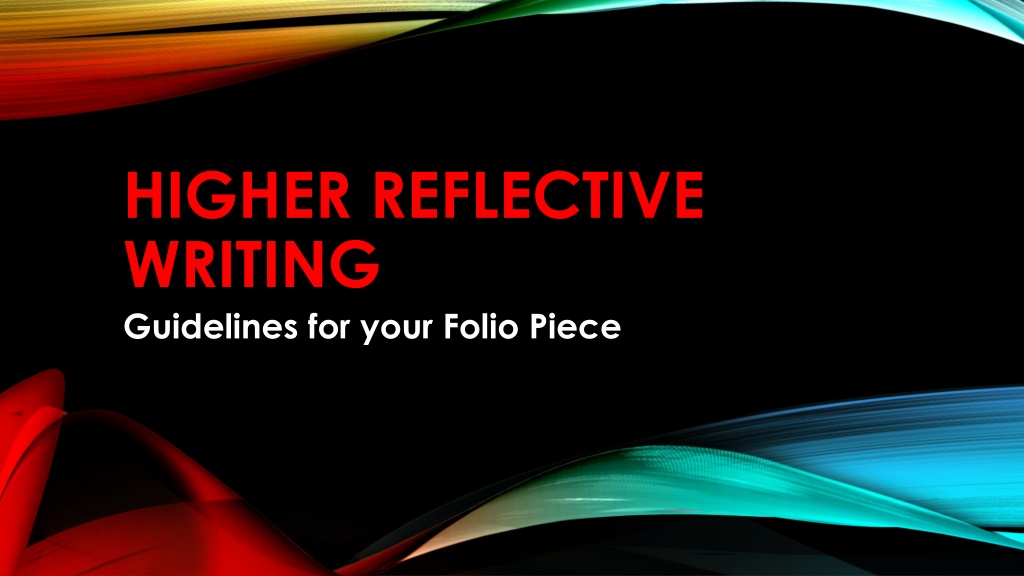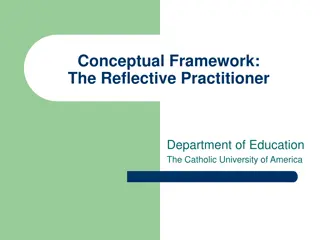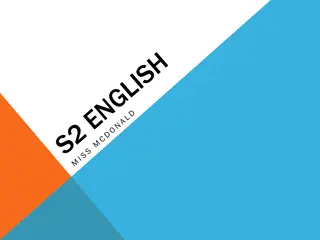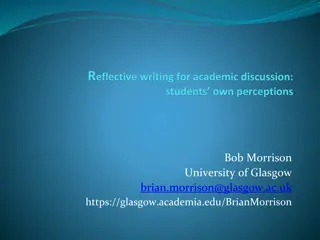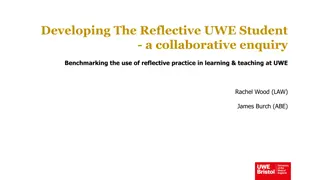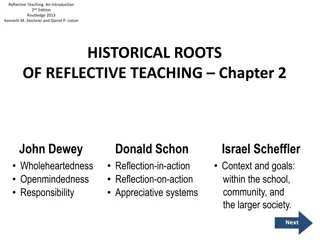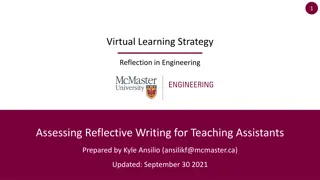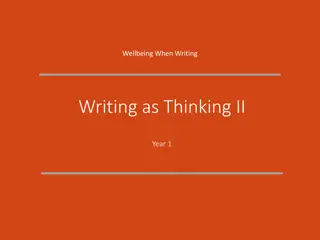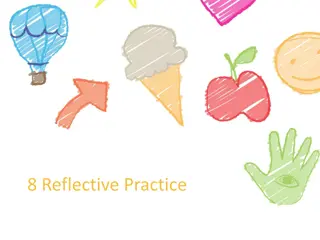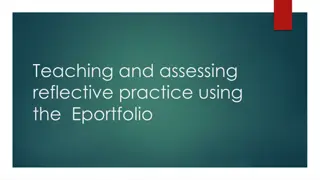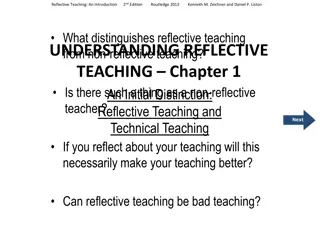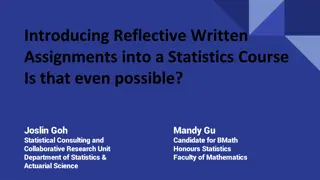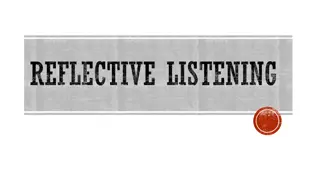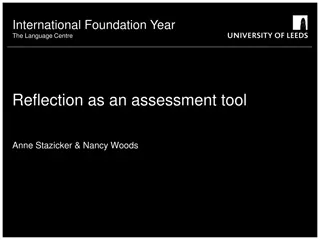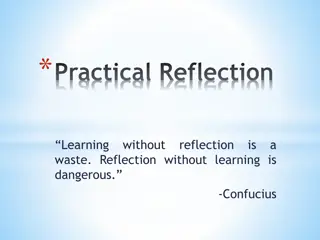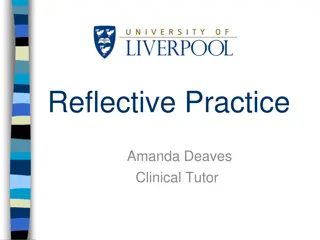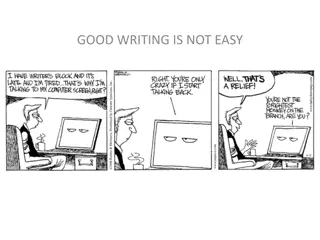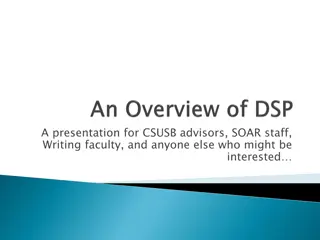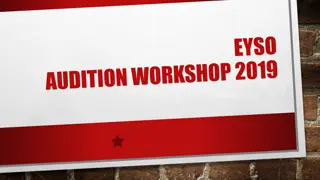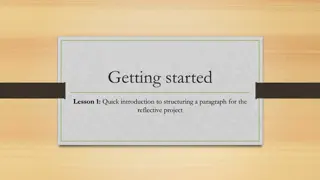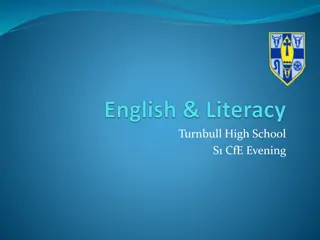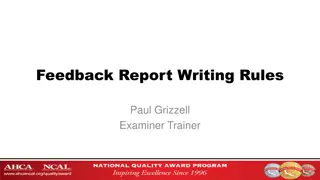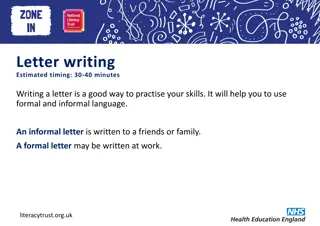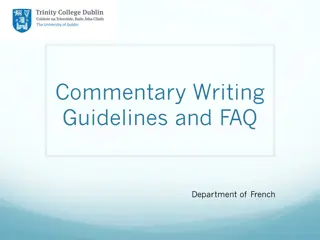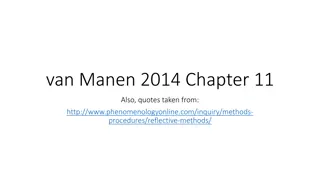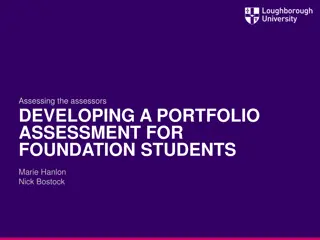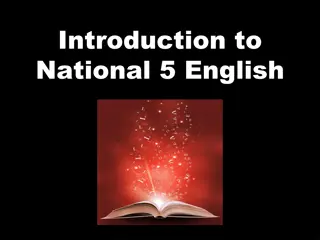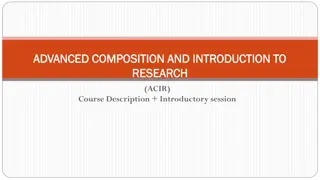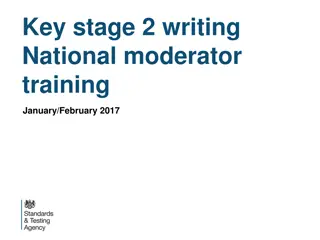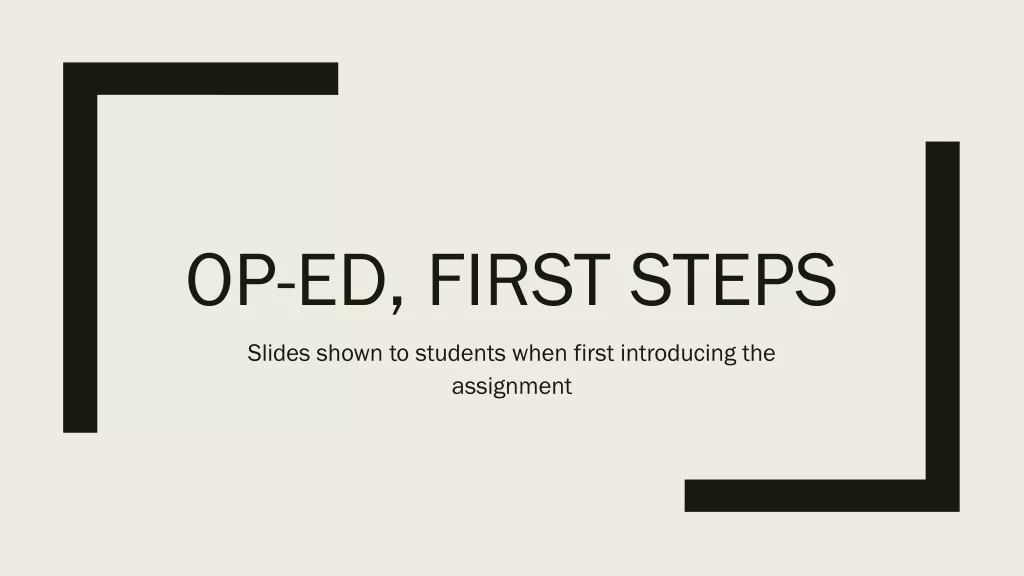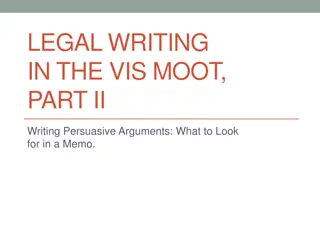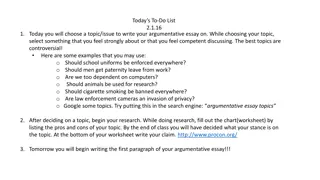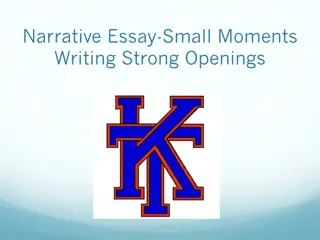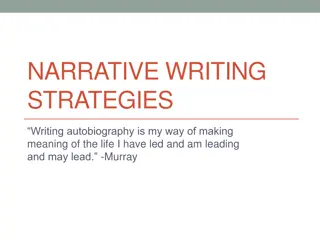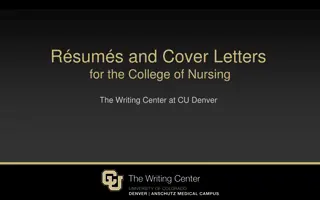Guidelines for Crafting Reflective Writing Pieces
Crafting a successful reflective writing piece for your higher folio is crucial, as it holds significant weight in your overall grade. Explore impactful experiences, reflect deeply, and avoid common topics to stand out. The process involves introspection, examining personal growth, and considering the influence of incidents on your life.
Download Presentation

Please find below an Image/Link to download the presentation.
The content on the website is provided AS IS for your information and personal use only. It may not be sold, licensed, or shared on other websites without obtaining consent from the author. Download presentation by click this link. If you encounter any issues during the download, it is possible that the publisher has removed the file from their server.
E N D
Presentation Transcript
HIGHER REFLECTIVE WRITING Guidelines for your Folio Piece
NEW HIGHER FOLIO THE BASICS Contains two pieces one persuasive or argumentative piece AND one reflective or imaginative piece. The Folio is worth 30% of the Higher mark overall. It has a significant impact on the grade you achieve in August so it MUST be taken seriously. Each essay will receive a mark from 0-15 A Folio piece must not be longer than 1300 words. Work under 650 words will receive a maximum of 6 (automatic fail!)
REFLECTIVE WRITING You could write about a memory, incident or experience which has had a genuinely significant impact upon your life Better essays tend to reflect more on an aspect of the writer s life or personality. Simply giving a blow-by-blow account of something that happened is not acceptable. You must REFLECT on the experience: consider how it has affected / changed you, or made you re-evaluate your views on something.
WHAT DO WE MEAN BY REFLECTION? When we reflect on something, either positive or negative that has happened to us, we are probably trying to work out the answers to some of these questions: Why did that happen? How did my behaviour affect what was happening at the time or the people around me? Am I pleased or disappointed by the way I behaved? If this were to happen again, what would I change about my behaviour? What would I be happy to do again?
REFLECTIVE WRITING: TOPICS TO AVOID! My favourite holiday / trip / Outward Bound Starting High School Moving house A time I got into trouble Work experience Friendship Scoring a goal / winning a game Illness / death anything you think LOADS of other people will be writing about. Originality and maturity are rewarded in this part of the Higher course. These done to death topics will all too often encourage you to write something clich d, childish or unoriginal.
WHAT THE SQA SAY! Choose a memory or an incident which will allow some honest and interesting reflection. Aim to convince the reader that the incident genuinely means something to you, that you have learned something from it. It s your attempts to explore your thoughts, feelings and reactions that matter in this type of writing. Try to use some of the techniques you see in the literature you read yourself or study in class, for example creation of mood and atmosphere, appropriate tone, effective word choice and sentence structures, etc. If your reflections are going to sound mature, then the vocabulary and the language need to be fairly adult as well.
WHAT COULD I WRITE ABOUT? What a piece of music / film/ book / toy / colour means to you Teenage life / pressures / stereotypes about teenagers Sexuality coming out; experiences with the opposite sex Your relationship with social networking Your definition of happiness / success / love / fear Prejudice you have suffered or how you have changed your prejudiced views Identity your own? National identity? Split identity? Loneliness / isolation / depression Your own body image / self esteem / eating disorders Family conflict / separation The future university, Highers, pressures
WHAT COULD I WRITE ABOUT? Envy, resentment or jealousy An argument, conflict or a difficult time An unusual hobby or ambition A person who genuinely inspires you, or who has had a genuine impact on your life What it means to be a boy / girl in 2014 Sibling rivalry or your relationship with your parents Bullying your experience as a bully or victim An incident which forced you to become more grown up A brush with the law Addiction your own or that of someone close to you. A place that is important to you / where something very significant occurred
GENERAL POINTS Can be about serious OR light-hearted topics. You may use a colloquial, chatty style to give a sense of your personality if you go for a less serious topic, use a self- deprecating approach to add humour. Ensure you make use of techniques such as imagery, varied and sophisticated word choice, anecdote, unusual sentence structures / patterns, tone, contrast, exaggeration Although you are not producing an argumentative or persuasive piece you may include the odd statistic or expert view if it will add to your writing.
A JUST PASS VS. AN OUTSTANDING PASS! You are going to consider two example essays My Dream (9/15) and A Dainty Princess (15/15) to deepen your understanding of the difference between adequate writing at Higher and outstanding writing at Higher.
A JUST PASS VS. AN OUTSTANDING PASS! Discuss and make notes on how both essays differ in terms of: 1. Topic choice 2. Word choice / sophistication of language 3. Use of imagery and sentence structure 4. Sense of maturity 5. Evidence of reflection (analysing own personality in depth) 6. Structure of essay as a whole. QUOTE BRIEFLY from the essays in support of your answers!
